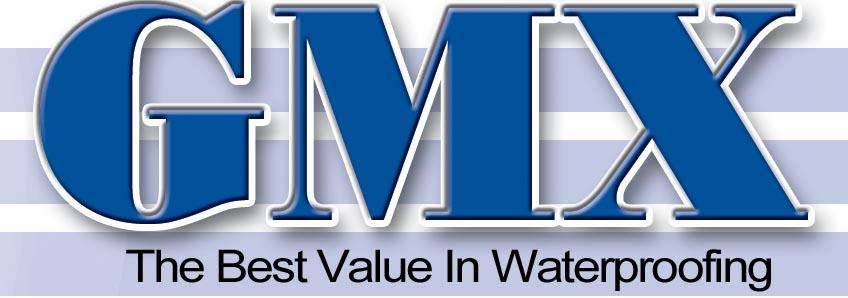THE IMPORTANCE OF EDUCATION
Mechanization and technology have vastly improved the concrete foundation industry from the inception of the CFA only thirty years ago. Boom trucks, concrete pumps, and conveyors have reduced much of the back-breaking work accompanied with the construction of concrete foundations. Technology in the form of CAD and robotic layout instruments have greatly improved productivity and accuracy in the layout and construction of basements. Association members themselves are often the “early innovators” in the adoption of new ideas, equipment, and technology. We see from our annual ‘Basement of the Year’ entries that our industry continues to test our knowledge and talents. The wide variety of articles in this magazine from year to year show us that our businesses continue to be challenged through good and bad economic times. As our industry has grown, so has the importance of education.
Now, facing us all squarely in the face is the issue of certification. As Ed Sauter points out in his ‘From the Executive Director’ letter , certification is inevitable. How competent your company rates in a variety of areas will be essential to your company’s future. It all leads to education. An education that from all viewpoints possible, pays dividends in one way or another.
Imagine if you were using the same business practices today that you used ten, or fifteen, or thirty years ago; would you be in business today? In the big picture, what does education do for you and your company? Read on.
WHY EDUCATION? REFUSE TO BE AN AVERAGE COMPANY!
We have to start with the idea that ‘education can help your company be successful’. Knowing that the time you put into acquiring knowledge pays off in success, which means dollars, should be a strong incentive to want to know more.
“Refuse to be an average company.” That’s what John Zink, Director of Education and Programs at the National Educational Foundation for Plumbing-Heating-Cooling Contractors says. He teaches that the success of a business can often be traced to the owner’s dedication to continuing education and encouraging their employees to constantly learn new skills. By participating in educational programs and training, you are giving yourself, your employees and your company opportunities to gain knowledge that will help save time, money and headaches. Depriving your company of these opportunities ensures that it will never be better than average. Something that you have invested your life’s work to build, deserves every opportunity to become phenomenally successful.
In his publication ‘A Business Owner’s Guide to Contractor Education’, he has these pointers that can apply to any foundation business:
• Recognize the massive benefi ts of training.
• Training = Better employee retention, higher company morale
and easier hiring.
• Make the time to attend educational programs.
• There will never be the perfect time to get away for a seminar.
CFA members who attend our meetings regularly understand the benefits of education and take this belief that education is beneficial home with them. Zink says that company culture starts at the top, and owners are responsible for setting the attitude that education is important. Recognize that there will never seem to be a good time to stop everything and attend a seminar. He says to accept that it’s a planning and discipline issue, and commit to attending educational events on a regular basis.
Do CFA members agree that education brings success — that they are more than an average company? Member Scott Smith, owner of MPW Construction Services (MPW) in LaGrange, Ohio confirms that “Education has helped MPW become successful. We provide management training, various certifi cation trainings and safety training. All have led to a sense of involvement and ownership in the company by our employees.”
Refusing ‘to be an ‘average company’, MPW has sent somewhere between 20 and 30 people over the years to the CFA Foundation Fundamentals seminar for training. The result? Scott says “One result has been that our crews are much better at identifying problem soils and calling for advice and action before proceeding with work. This leads us to seek engineering solutions before we place concrete on poor soils, where in the past a crew might have proceeded forward. I am sure this has saved us from tearing out footings and has also protected our company and our customers.”
He also says that the management training has resulted in his young managers learning the importance of clear communication. He says “Part of their training involves learning an ‘interaction process’ that they really use, almost daily. The process gives structure to not only everyday communication, but also how to conduct a meeting – by opening a conversation with what they want to accomplish in the talk, clarifying, developing the topic, getting feedback, getting agreement about actions to be taken (with dates for completion etc.) and closing.”
Scott adds that “In my own case, this has led to me getting clear, concise and complete emails about issues from these trained employees. This saves me time and helps me give advice and feedback. But it really goes much further. We have heard from numerous trainees how important this has been to them and how they use the processes and skills all the time in disciplinary issues, evaluations and more.”
Fellow CFA member Dan Bromley of ABI Corporation in Missouri, could add another pointer to John Zink’s list; “Tell others.” He remembers that seventeen years ago when he first heard a Brent Anderson fundamentals seminar, it “really opened my eyes. He gave me a good base and since then I’ve kept up. I am a constant learner.” Not only is Dan knowledgeable and has put that education to work in his company, but he has went so far as to develop his own three-hour seminar which he presents to many groups.
Tim Parrish of Cornerstone Foundations, a CFA member from Virginia, says education has helped his company to be successful in two ways. First, their key people received education on a national level and secondly, they were able to pass on the information and educate people within their company. Tim says “When I began my business in 1988 I was open to everything. I joined CFA my first year and found it provided such a wealth of information that I was overwhelmed. It was a double dose, with both the official meeting format and then networking with people willing to share ideas with me. It helped us get off to a good start. Now, at this point in my business, I’m turning over responsibility and so I am relying on the CFA training to teach my people.”
CFA President Brad Schrock from Custom Concrete Company, sums it up in his ‘From the President’s Message’, “We feel that educating our personnel is an area where we can develop a competitive edge in our market. After all, if we cannot find creative ways to separate ourselves from our competition, then the only way our customers can evaluate us is by our price.”
WHY EDUCATION? SAFETY (AND BECAUSE THE GOVERNMENT IS INTERESTED IN WHAT YOU ARE DOING TO PROVIDE EDUCATION)
Your safety materials, frequency of meetings, accident rates and a host of other safety issues will most likely be evaluation points in the future process of certification, according Sauter. Because of this, our question to you is, what do you have to show in terms of providing safety education for your employees? Do you know your county and state guidelines for safety education?
These three CFA members are ready.
MPW employees attend regular safety meetings. The result, Scott Smith says “is that our focus on safety and entering a drug-free workplace program have reduced all categories of injuries and worker comp issues. In addition to the routine savings from these daily benefits, our compensation rates are lower by tens of thousands of dollars as a direct result of the training focus.” Their training has also helped MPW qualify for projects that require certain training levels in drug-free workplace and safety programs.
Dan Bromley conducts his three-hour seminar for the NAHB’s University of Housing in his market detailing concrete foundation construction along with a safety message. He attributes much of the information he bases this seminar on as coming from the years interacting with the CFA, their presentations, his peers and personal experience.
When it comes to safety, Tim Parish stresses that “we’re playing with God’s lives, not just OSHA.” Tim has seen first-hand the benefits of safety education. For example, he says that “A few years ago we attended a CFA seminar on ‘Trench Safety’ presented by Dan Bromley. This is something we don’t always pay enough attention to. He did such a good job of making the information understandable that I was able to bring it back and insist that my excavators and trenchers follow the safety guidelines that Dan had outlined. Now it is just normal to follow these safety guidelines, and we just don’t work on a job if it’s not safe.” If you don’t know much about your local codes, a typical example of the message these governing bodies are starting to send can be found in Dade County, Florida where they require 16 hours of continuing education for local contractors and tradesmen which includes safety education.
Their view is that a wide variety of effective and relevant continuing education classes are available. While considered skilled in your particular field, there are, nonetheless, classes designed to improve proficiency in various trades, provide information regarding advancements and innovations within specific trades and general trade refresher courses. They tell contractors in regard to safety education that “safety is an important concern within the construction industry and is reflected by a number of courses aimed at providing a safer work environment, such as courses on general construction safety, scaffolds, ladders and stairs, and Occupational Health and Safety Administration requirements.”
Overall, government looks on safety education as your responsibility.
WHY EDUCATION? CONSUMERS WANT TO KNOW IF YOU’RE ON THE BALL
On top of your goal to have a successful company, and the government’s push to be sure you are safe, your customers want to know about you too! Whether you are a general contractor or subcontractor in foundation construction, in this day and age everyone is looking for someone they can count on.
Your time spent learning can turn into solid evidence when you are asked to provide information about the qualifications of your company employees. Being able to bullet point specific course completions, certifications, or association memberships can create that edge of confidence. Dan Bromley says that his “customers look at me as the guy that knows the answers. Yes, I think my customers give me jobs because I know the code and show that I am knowledgeable about our industry. My people can also talk with confidence.”
Scott Smith says that education has definitely had an affect on his company’s reputation “in many ways; ranging from employee good will to builder confidence in our staff and crews.”
Tim Parish says education “has helped us with our contractors. When they are working with a difficult situation, they know that when they turn to us, that we have the professional ability to handle it, and can do so affordably. They know our solution will work and that we can turn the job around faster (than waiting for an outside engineering evaluation). End customers, when they see the information we provide, like our knowledge. Even competitors call us for help. This has helped us get jobs because our customers value our foundation industry know-how and engineering abilities; for instance, someone with a large commercial job may find that the engineer has over-designed a foundation. We are able to look at the plans and find ways to save money, yet build a quality foundation.”
WHY EDUCATION? UNCLE SAM WANTS TO KNOW THAT YOU “REALLY DO KNOW’
One of our goals at CFA is to be at the forefront with government legislation regarding education and safety for our industry. We think we know our industry better the suits that write the legislation, so using our Association infl uence in Washington matters. We want the guidelines and rules to be fair and effective for our members. Representing the interests of CFA members and the foundation industry, several CFA members have been active participants in developing codes and standards for the industry, including ACI’s code for residential concrete, and are members of a Certification Committee.
ucation
As Ed Sauter asked (see Contractor Certification), if certification is inevitable, which would you rather have? A government entity telling you what you should know, or an industry-generated program that is specific to your field?
Both federal government and local government have been and will continue to develop both educational and code guidelines they want you to follow. Tim, Scott, and Dan all agree that learning the codes, and then earning a reputation for understanding, following, and helping to develop code, has helped their businesses.
Tim Parish sees that “as the years go on, the building codes are always changing. In 2000 a lot of the codes were lumped together into the IRC. When it was introduced, it was confusing. CFA spent the time to explain what the codes meant. I was then able to be proactive by going to my inspectors and explaining; they had been just as confused by the new code as we were. This was favorable for the reputation of my business. Others waited for the inspectors to react; and then it meant lost time, and often incorrect interpretation of the code.”
In addition, shortly after the IRC was introduced, Tim went to a local engineer and came up with a copyrighted, standard foundation drawing that met code. Inspectors found this helpful as they knew it was a good design based on engineering and code requirements. Now it is their standard practice to use these pre-qualified plans. Tim says “This step has given us a competitive advantage. When we get a wall not covered by code, like a 12-foot wall, we either go to an engineer or use CFA’s engineering program, (I use the software and then send to engineer) for stamp of approval.”
Scott Smith says that “education about local codes at MPW is an on-going, in-house program that helps us avoid job site issues and improves our relationship with local building code officials.”
Working with education gained through the CFA to impact local entities is Dan Bromley. A frequent CFA seminar presenter, his extensive understanding of code has taken him to committee participation on many levels in the last five years. He says “When cities in my service area want to write new guidelines or code, they invite me.” He has worked with these local jurisdictions as well as the local HBA, and currently chairs the CFA committee to develop a company certification program that would be introduced nationally.
WORTH IT?
Overall, government looks on training and education as YOUR responsibility. John Zink’s outlook is that education provides success where it counts — in YOUR pocket. And to the people that hire you, if they are comparing, your expertise can make the difference between whether YOU get the job, or whether YOU don’t.







